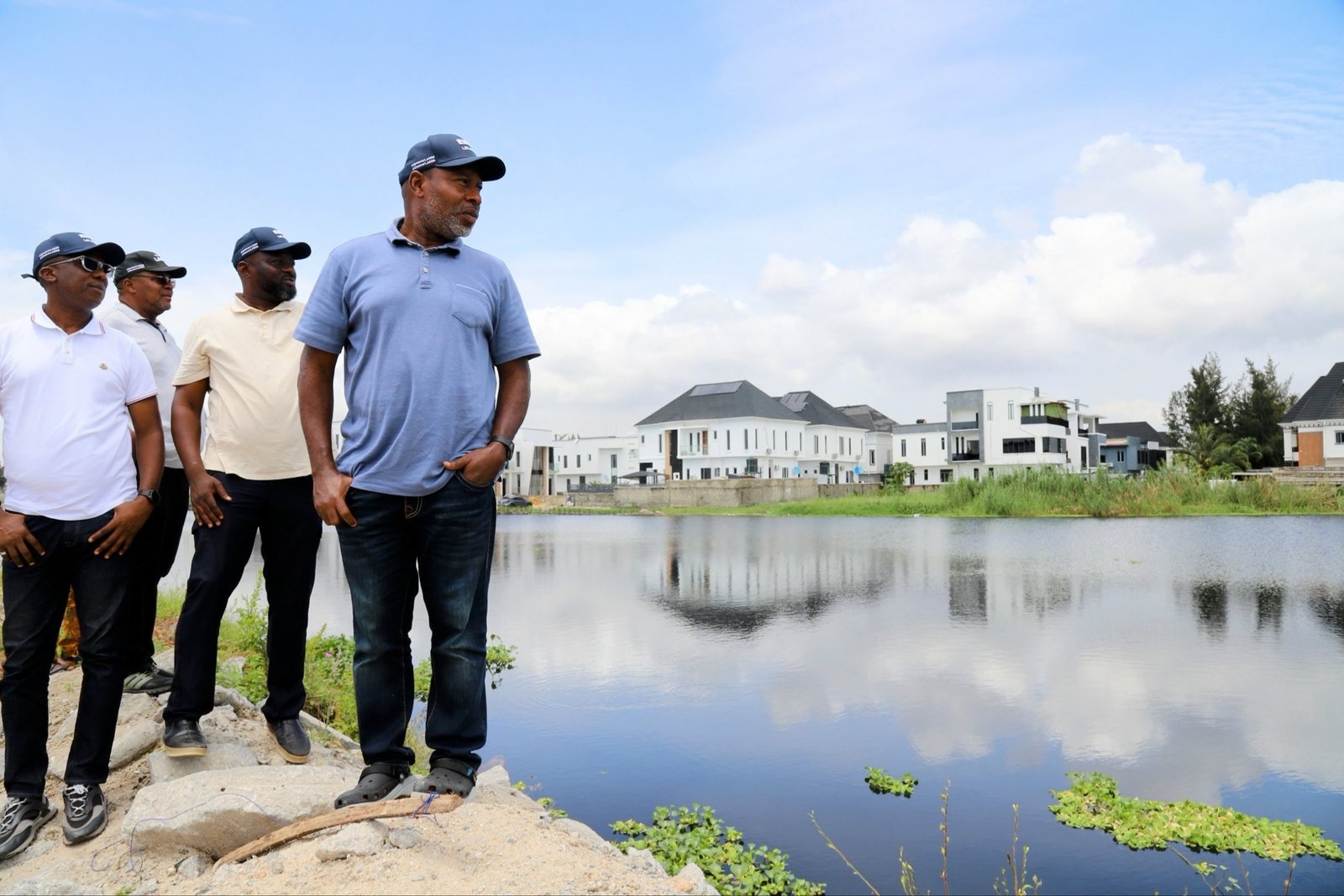The Lagos State Government has intensified its environmental enforcement drive, sealing multiple illegal land reclamation projects and issuing stop-work orders along the Ikota River off Orchid Road in Lekki.
The operation, led over the weekend by the Commissioner for Environment and Water Resources, Tokunbo Wahab, targeted sites around Partibons Homes Estate and Bee-Forth Estate Phase II, where developers had reclaimed parts of the river and erected illegal structures.
Wahab, speaking after an inspection tour, said the state acted on reports that individuals were selling reclaimed plots to unsuspecting buyers, describing the act as “heart-wrenching.”
He emphasized that such activities not only compromise natural water channels but also worsen the city’s perennial flooding problem. “The illegal activities ongoing in the area are heart-wrenching because some individuals have deliberately chosen to destroy the ecosystem provided by nature,” Wahab said.
According to a statement shared on the Lagos State Government’s official X account, the commissioner explained that the reclamation had blocked critical drainage systems, including Systems 156 and 157, which channel stormwater into the lagoon.
He said the government would not tolerate developments that reduce the size of natural rivers or obstruct the free flow of water in a city already prone to flooding.
Wahab underscored Lagos’s geographic vulnerability as a coastal city bordered by the Atlantic Ocean, lagoons, and rivers, noting that flooding could only be mitigated, not completely prevented.
He said the government was committed to enforcing environmental laws that protect natural drainage paths, warning that offenders would face strict legal sanctions for violating environmental and planning regulations.
During the enforcement exercise, the state also continued restoring the Right of Way along the Ikota River alignment within Oral Estate II, where 17 buildings were demolished for encroaching on flood-prone areas.
Wahab was joined by the Commissioner for Transportation, Seun Osiyemi, as both ministries jointly inspected environmental infractions along the Lekki-Epe Expressway corridor.
The inspection revealed that several automobile dealers operating along the corridor had overstepped their approved temporary boundaries.
Wahab said they were served abatement notices on September 26, 2025, for encroaching on wetlands and setting up structures under high-tension power lines.
He explained that these actions conflicted with the Lagos Green Rail Line project’s master plan, which prioritizes safety and environmental protection along the right of way.
The recent enforcement aligns with Lagos State’s broader flood control and wetland protection strategy. Over the next 24 months, the government plans to integrate estate lakes, canals, and pumps into a “Blue-Green Network” a sustainable system designed to store and gradually release rainwater, minimizing flash floods.
The strategy also includes installing flap gates and pumps at tide-sensitive outfalls, restoring canal rights-of-way, and expanding drainage capacity across the metropolis. Between 2023 and 2025, maintenance was conducted on 579 kilometers of secondary collectors and 309 kilometers of primary channels, while contracts were awarded for 218 new channels.
The government said the Emergency Flood Abatement Gang (EFAG) had cleared 444 kilometers of drains and restored 40 kilometers of encroached channels. Additional measures include installing debris screens, piloting estate lakes, and enforcing drainage easements to prevent future blockages.
These interventions are part of Lagos’s long-term plan to reduce the environmental risks of rapid urbanization and climate change. The government is also updating building regulations to require on-site water retention systems in new developments, ensuring that estates contribute to flood control rather than worsen it.
With rising concerns over flooding in Lekki and adjoining communities, the government’s latest crackdown sends a clear message to developers that environmental noncompliance will not be tolerated. Wahab reaffirmed that restoring wetlands and protecting natural waterways remain central to the state’s sustainability and resilience agenda.

